West Africa
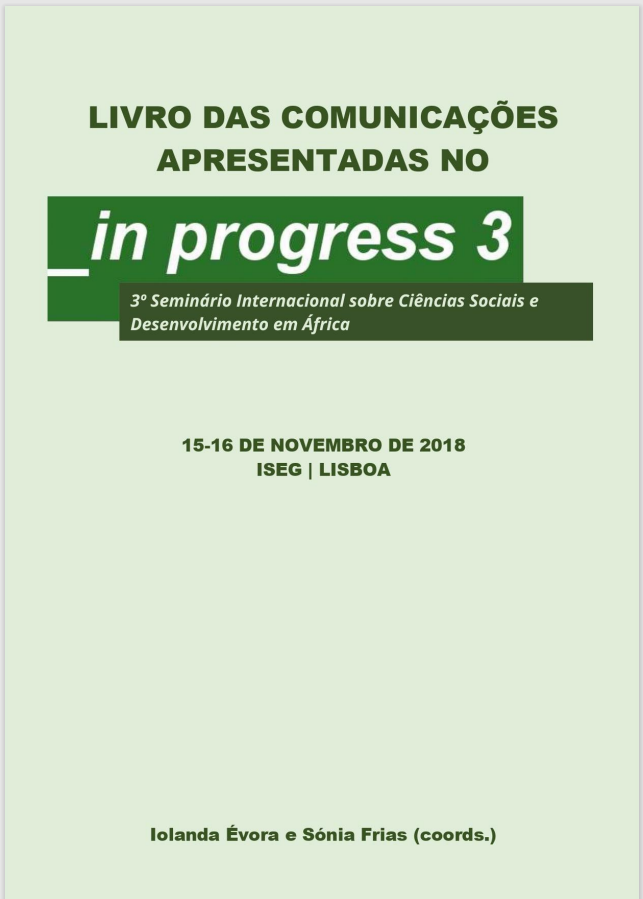
Book of Papers Presented at the In Progress 3 Seminar
Abstract:
This third edition of In Progress, Seminar on Social Sciences and Development in Africa brings together works by researchers and postgraduate students whose study and research theme is contemporary Africa and its development, supported by scientific currents that stimulate new approaches beyond the “development”, exploring the notions of “well-being” or “good living” and remaining close to currents of thought and debates between Africa, Asia and Latin America. The texts include themes such as: fieldwork: practical, theoretical and methodological issues; politics, civil society dynamics, development; culture, thought and change; strategies for cooperation and development; and populations, mobility and well-being. The second part of this work contains the reflections of the speakers invited to the In Progress 3 seminar, which include both a critical perspective on the dominant discourses and methodologies in the field of development policies linked to mobilities, economy and identities, as well as the contribution of financial growth for economic growth and several of the issues to be taken into account in discussions on economic sustainability, taking the example of SADC member countries. The final conference refers to the times and questions that are important to retain and what is important to reflect on in the context of social and human sciences, in particular, when the debate is about the (neo)colonial perspective and contemporary global challenges for African Studies.
Cite this e-book:
Évora, Iolanda e Sónia Frias (coord). 2024. Livro das Comunicações Apresentadas no In Progress 3 com Revisão por Pares : 15 a 16 de Novembro de 2018 no ISEG/ULisboa. Lisboa: ISEG – CEsA
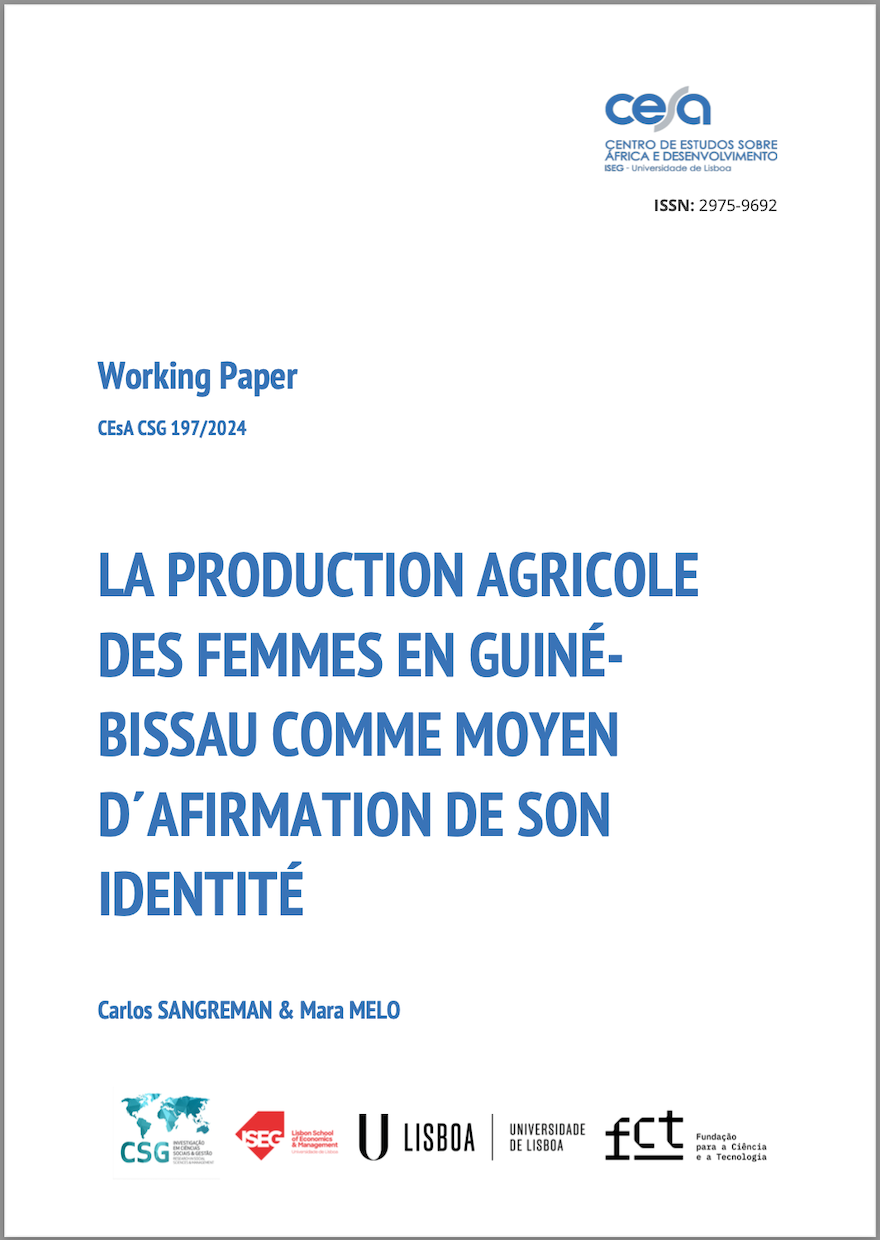
Working Paper 197/2024: La Production Agricole des Femmes en Guiné-Bissau comme Moyen d´Afirmation de son Identité
Abstract:
This working paper is an intermediate product of the study done for Swiss Cooperation in Guinea-Bissau, written in French without any point in Portuguese. What we demonstrate, as well as the principles of restitution and appropriation by the persons or institutions that access to respond to surveys or interviews, are words that do not translate into concrete actions for this Cooperation. The data were obtained by surveys and interviews in the regions of Bissau, Biombo, Bafatá, and Oio, with the producers (which also include a limited number of male producers) of leguminous agricultural products, in a sample of 160 people chosen at random. At the option of the promoter, the study focused on the marketing of products and not on production. To better understand the results, it must be said that this business model is not very profitable, but it is an activity that gives a greater independence of women in relation to men in the family space, since decisions about the use of profits belong to the producers. It also has a potential environment of action for the affirmation of the social (and not just family) identity of women that should not be despised although, as far as we can see, this is expressed for now only in the organization of associations of producers.
Cite this Working Paper:
Sangreman, C. e Melo, M. (2024). “La Production Agricole Des Femmes En Guiné-Bissau Comme Moyen D´Afirmation De Son Identité”. Instituto Superior de Economia e Gestão – CEsA/CGS – Documentos de trabalho nº 197/2024
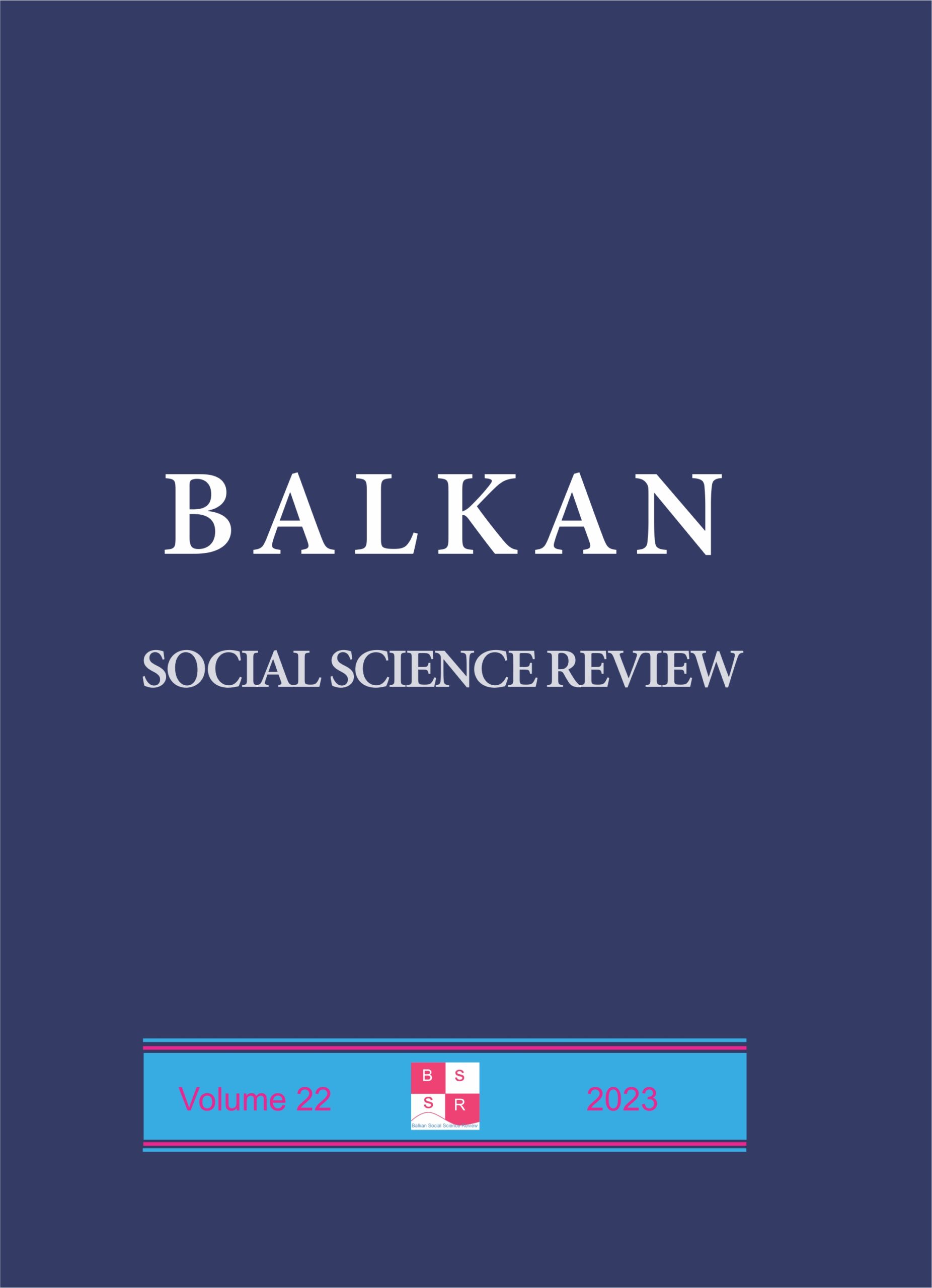
Understanding Social Realities of Internally Displaced Persons (IDPs) in the Federal Capital Territory of Nigeria (FCT), Abuja
Abstract:
This article examines the social realities of forcibly displaced persons in Nigeria, with a focus on internally displaced persons (IDPs) in the Federal Capital Territory (FCT) of Nigeria, Abuja. Internally displaced persons are individuals who have been forced from their homes or habitual places of residence and, unlike refugees, have not crossed the borders of their country. They remain under the primary protection of their governments and often seek refuge in their own countries. This study draws on secondary data sources and primary data collected from two IDPs campsites, arguing that most IDPs in the FCT, displaced by the Boko Haram insurgency live in makeshift and inhumane informal settlements in the peri-urban areas of Abuja City. These settlements also host the urban poor and other economic migrants in the country’s capital, occasionally leading to conflicts between them. The paper calls for the government to recognise the presence and condition of IDPs in the FCT and to work with relevant organisations to provide durable solutions to ensure that displaced persons can once again become productive members of society.
Cite this article:
BA-ANA-ITENEBE, C. A.; EDO, Z. O. (2023). Understanding Social Realities of Internally Displaced Persons (IDPs) in the Federal Capital Territory of Nigeria (FCT), Abuja. In: Balkan Social Science Review, Vol. 22, 213-231. https://doi.org/10.46763/BSSR232222213bai
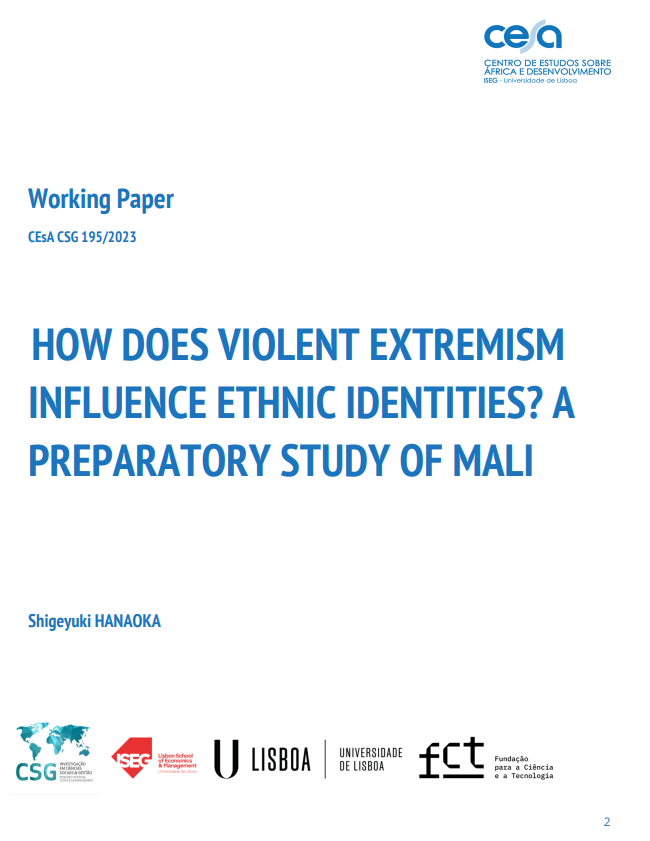
Working Paper 195/2023: How Does Violent Extremism Influence Ethnic Identities? A Preparatory Study Of Mali
Abstract:
How does violent extremism (VE) impact individuals’ ethnic identities? While there is a broad body of research on VE, which has seen significant growth in Africa in recent years, including assessments of its origins, the coalescence of various movements, and military operations against VE, research on its impact on ethnic identity and its associated political behaviours remains limited. This work serves as a preparatory study to examine how people’s perceptions, and political behaviours related to ethnic identity have evolved during the period of VE’s substantial expansion in Mali in recent years.
Quotation:
Hanaoka, Shigeyuki (2023). “How Does Violent Extremism Influence Ethnic Identities? A Preparatory Study Of Mali”. CEsA/CGS – Documentos de trabalho nº 195/2023
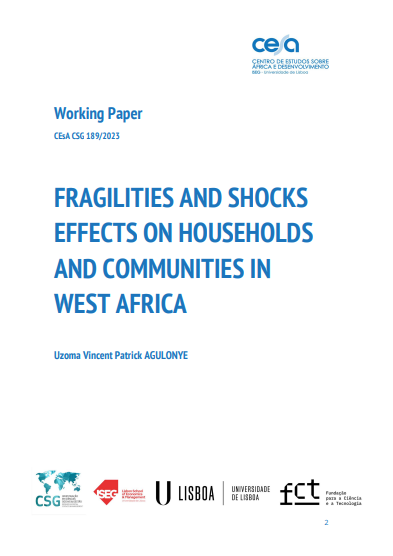
Working Paper 189/2023: Fragilities and shocks effects on households and communities in West Africa
Abstract:
Shocks are drivers of fragility yet most works on fragility in Africa use the tag “fragile state(s)” with less focus on the drivers of fragility in its institutions, states, and economies. Shocks are cardinal to the entrenchment or stability of any system. The Covid-19 pandemic revealed how fragile the world is including the “developed” or “advanced” systems. Today, households, businesses, and communities in most parts of Sub-Saharan Africa suffer the effects of a triple whammy (climate change, the pandemic and Russia/Ukraine War) including effects of history and an unfavourable global system all of which leaves them in hunger, poverty and vulnerable conditions. Fragilities and Shocks Effects on Households and Communities in West Africa used secondary sources to revisit the effects of these shocks on households, and communities in West Africa through the lens of common resources. The recent shocks effects prevalent in all these countries is higher than reported and would affect West Africa´s growing population in the foreseeable future with the absence of safety nets or effective interventions. The absence of shocks preparation in the subregion is not sustainable and adds up to the sustenance of the revolving circle of fragility in the subregion.
Quotation:
Agulonye, U.V.P. 2023. “Fragilities and Shocks Effects on Households and Communities in West Africa“. Instituto Superior de Economia e Gestão – CEsA/CSG – Documentos de Trabalho nº 189/2023





